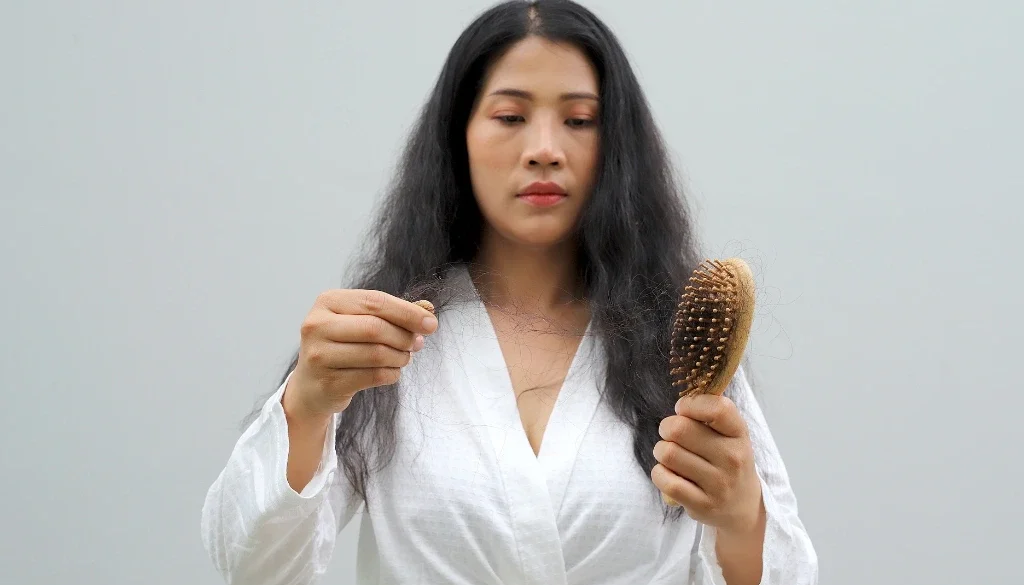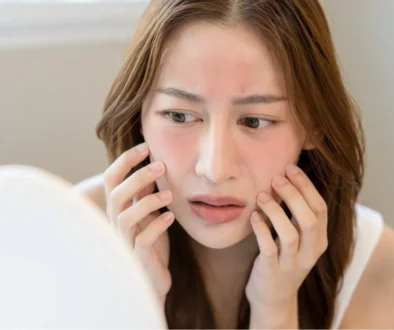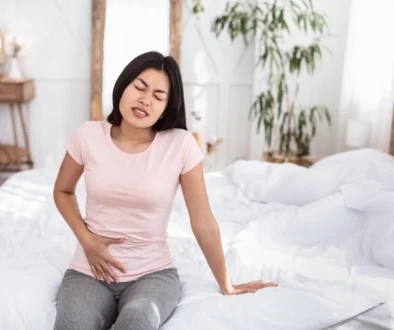Hair Fall After Pregnancy: Why It Happens and What You Can Do
Bringing a baby into the world is one of life’s most beautiful experiences, but for many new mothers, it also comes with unexpected changes in their body, skin, and hair. One of the most common yet often overlooked changes is postpartum hair loss.
If you’ve seen clumps of hair on your pillow or more strands than usual coming out in the shower a few months postpartum, you are not alone. This issue is an entirely normal condition called post-pregnancy hair loss (or postnatal hair fall) that is temporary. At Lifeline Clinic Dubai, our dermatology experts help new mothers understand these changes and provide safe, effective hair loss treatment in Dubai to restore healthy, strong hair.
Why Does Postpartum Hair Loss Happen?
During pregnancy, the body undergoes remarkable hormonal changes. Estrogen, a key hormone, increases significantly and plays a significant role in keeping your hair thick and shiny. This is why many women experience fuller, healthier hair while they’re pregnant.
After childbirth, however, estrogen levels drop sharply. This sudden hormonal shift causes more hair follicles to enter what’s called the resting (telogen) phase, leading to hair fall post-pregnancy. You may start noticing this shedding around two to four months after delivery, which can feel alarming, but it’s actually a natural part of the body’s recovery.
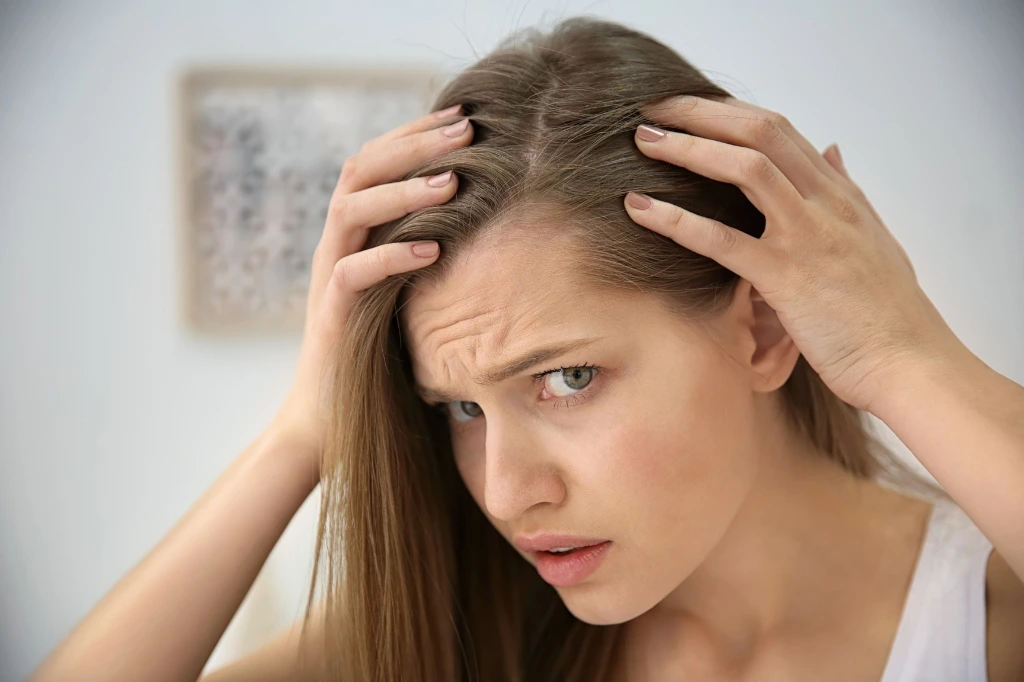
How Long Does Postpartum Hair Loss Last?
For most women, post-pregnancy hair loss is temporary. The shedding usually peaks around four to six months after childbirth and gradually improves by the baby’s first birthday.
Several factors may contribute to hair loss being more noticeable, or it may last longer due to the following:
- Stress or lack of sleep (especially common in new moms)
- Poor nutrition or low iron
- Thyroid issues
- Too much styling or heat application
- Existing scalp conditions
If your postnatal hair loss continues beyond a year, or if you notice patchy bald spots, it’s best to consult a dermatologist for evaluation and customised hair loss treatment.
Signs of Post-Pregnancy Hair Loss
Postpartum shedding can vary from mild to significant. Common signs include:
- Hair coming out in handfuls while brushing or washing
- Noticeable thinning around the temples and hairline
- Hair appearing flatter, duller, or less voluminous
- Visible strands on pillows, clothes, and bathroom drains
Even though it can be distressing, remember that postpartum hair loss is a temporary condition your hair will regrow once hormone levels stabilise.
How to Manage Postpartum Hair Loss
Although you can’t completely stop post-pregnancy hair loss, you can reduce its impact and support faster recovery with a few simple lifestyle and hair-care changes.
1. Be Gentle With Your Hair
Avoid tight ponytails, braids, or buns that cause traction on your scalp. Always use a wide-tooth comb to detangle hair, and avoid brushing when it’s wet since wet hair is more susceptible to breaking.
2. Use a Gentle Shampoo and Rich Conditioner
Opt for a standard, sulfate free product that is healthy for your scalp. Look for a product that has biotin, keratin, or natural oil to help strengthen the hair from root to tip.
3. Eat a Balanced, Nutrient-Rich Diet
Healthy hair starts from the inside out. Add any foods high in iron, protein, omega-3 fatty acids, zinc, and vitamins A, C, D, and E. Using natural oils such as argan, coconut, or almond oil can help improve the quality of hair by nourishing the scalp.
4. Massage Your Scalp
Consistent scalp massage improves blood flow and helps the hair follicle grow. Hydrating the scalp with natural oils like coconut oil, almond oil, or argan oil enhances your hair’s quality.
5. Reduce heat and chemical styling
Let your hair recover from excessive blow-drying, straighteners or colour. Allow it to air-dry and use protective sprays whenever you may need to style your hair with heat.
6. Reduce stress and rest
Not sleeping enough, along with emotional stress, can aggravate hair loss. Try to take little naps, practise gentle exercise and mindfulness where possible. Taking just 15 minutes to breathe slowly and calmly can help your body recover.
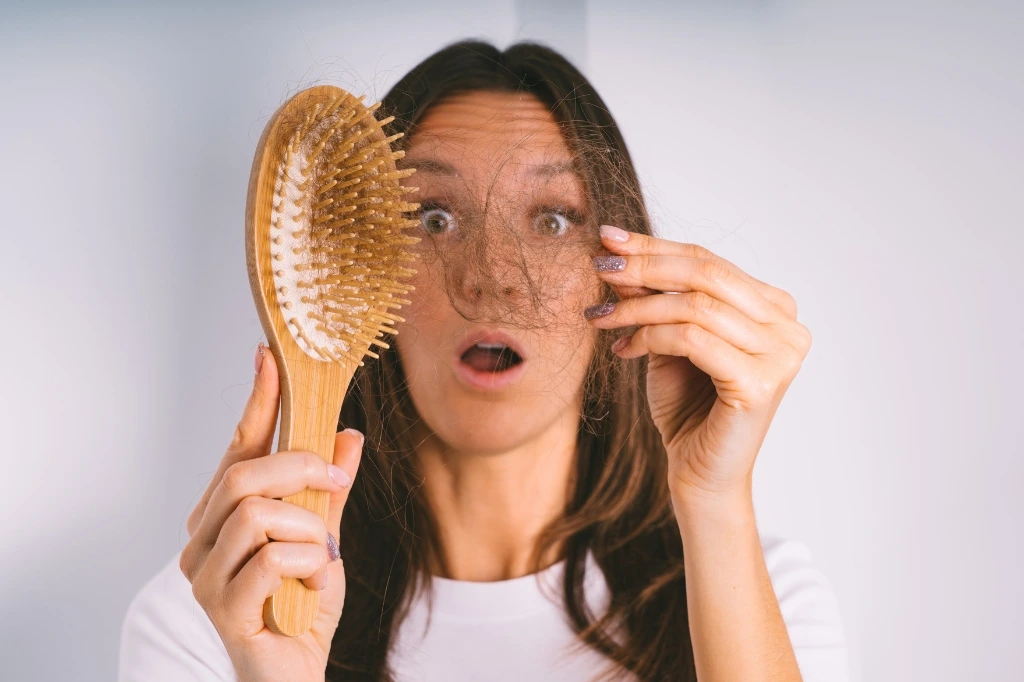
When to See a Dermatologist
If your postnatal hair fall feels excessive, continues beyond a year, or if you notice bald patches or scalp irritation, it’s time to consult a specialist. Here at Lifeline Clinic Dubai, our dermatologist will assess your scalp, evaluate your hormone and nutrient levels, and develop a personalised plan based on your needs.
We offer personalised hair loss treatment in Dubai that may include:
- PRP (Platelet-Rich Plasma) Therapy to stimulate new growth naturally
- Mesotherapy to deliver essential nutrients directly to hair roots
- Medical shampoos or serums to restore scalp balance
- Nutritional supplements to support long-term recovery
These treatments are safe for postpartum women and will help to restore strength, shine and volume to your hair with time.
Can hair loss after childbirth be prevented?
Although you cannot stop postpartum hair loss entirely, you can reduce its severity with early intervention and good nutrition. If possible, strive to sustain a healthy lifestyle for the duration of your pregnancy and continue after your baby is born. Be sure not to skip meals or go on crash diets, as your body needs adequate nutrients to recover from the delivery and to support the regrowth of your hair.
Gentle handling of your hair, combined with regular scalp care and hydration, goes a long way toward speeding up recovery.
Emotional Impact: You’re Not Alone
Many new mothers feel anxious or stressed about experiencing hair loss during pregnancy. It is essential to keep in mind that hair loss isn’t permanent, and does not accurately represent your overall health or beauty. You may find comfort in discussing this with your doctor or dermatologist. They can confirm you are fine and offer professional advice directed toward your needs.
At Lifeline Clinic, we recognise that you are facing emotional challenges, and our compassionate team offers not only medical care but also guidance to support your confidence during your postnatal journey.
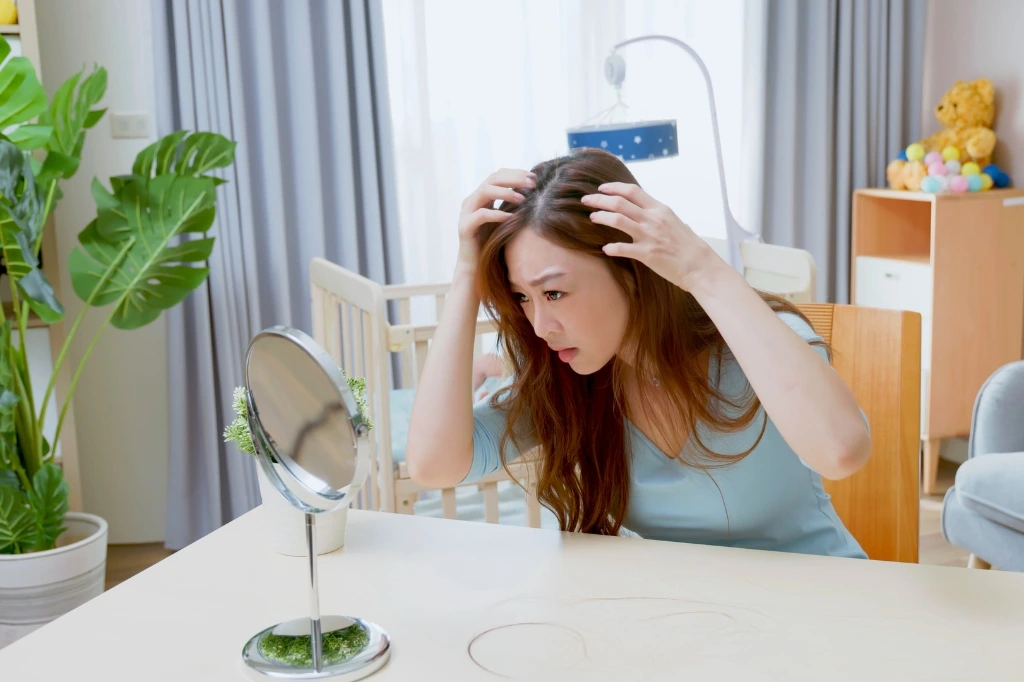
Final Thoughts
Experiencing postpartum hair loss is a typical, temporary response in new mothers. It can be demoralising to have thinner hair, but please keep in mind that you’re merely adjusting to the hormonal changes after giving birth.
With appropriate nutrition, tender care, and professional support from experienced dermatologists, your hair can regain its fullness and strength. If you’re experiencing hair loss after having a baby and seeking expert advice on advanced hair loss treatment in Dubai, visit Lifeline Clinic today. Let our specialists help you restore your confidence and have healthy and beautiful hair again.

